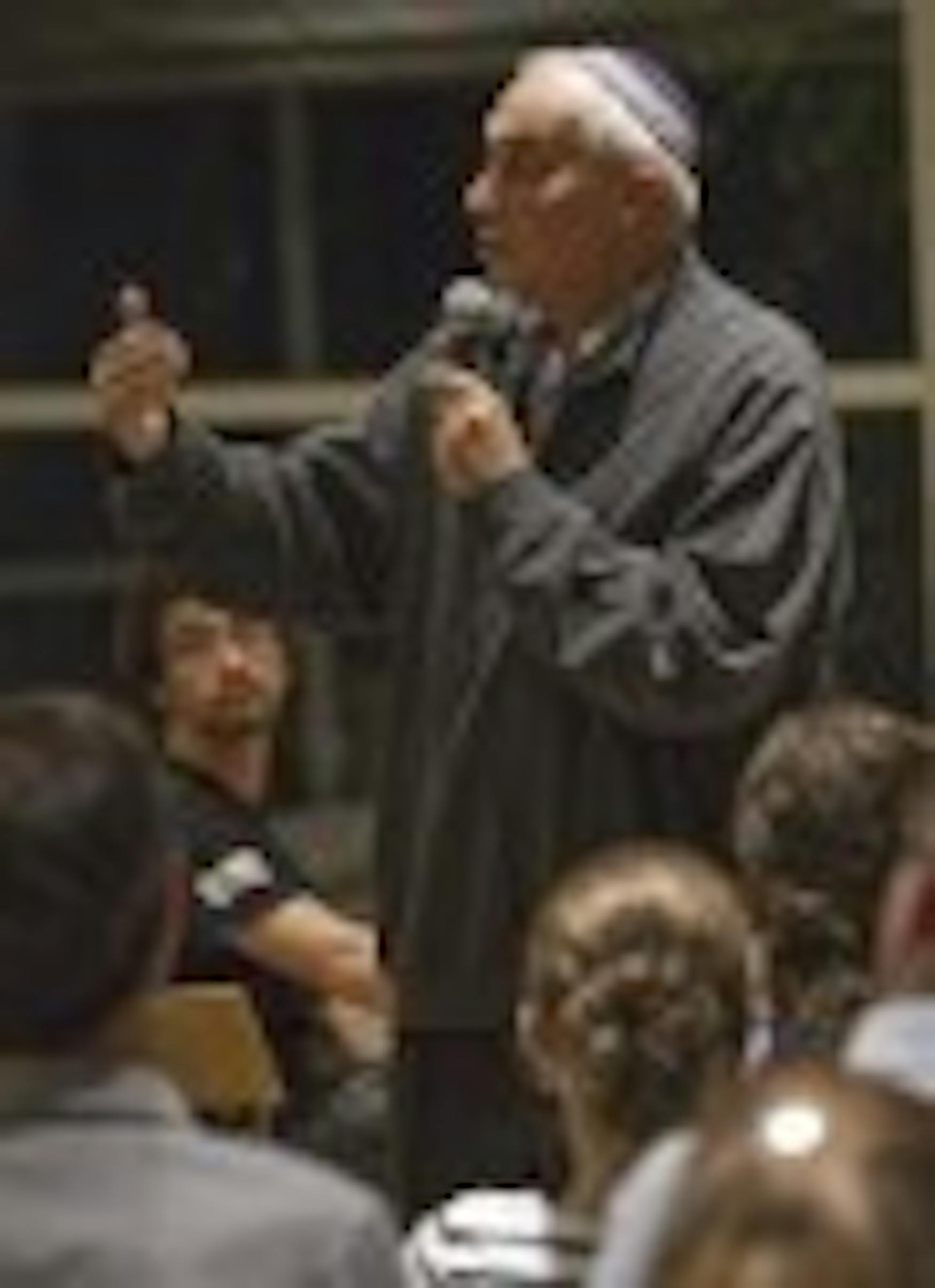Weiss discusses Orthodoxy
Rabbi Avi Weiss, founder and president of Yeshivat Chovevei Torah, the Modern and Open Orthodox Rabbinical School in New York, and the senior Rabbi of the Hebrew Institute of Riverdale, discussed the spiritual challenges associated with the future of Modern Orthodoxy Thursday with Brandeis students, faculty and community members.The Brandeis Orthodox Organization, Toby Kaplowitz and Rabbi Elliot Kaplowitz '02, a graduate of Yeshivat Chovevei Torah, both of whom direct Hillel's learning initiative, coordinated the event, according to the Facebook event created for the talk.
Weiss spoke about his vision of Modern Orthodoxy, called "Open" Orthodoxy. Modern Orthodoxy is a sect of Judaism that believes in the divine origin of the Torah and that sees Jewish law as binding. The movement also believes in the benefit of engagement with the modern world. Weiss distinguished his view of Orthodoxy because he said that he believes the Modern Orthodox movement is moving to the right. For example, the Orthodox rabbinate does not approve of women being ordained but despite this, Weiss recently ordained the first woman in American Orthodox Judaism, according to a July 11 New York Magazine article.
Weiss emphasized that his vision of Orthodoxy consists of "open discussions of all kinds of issues that we do struggle with." He further explained that Open Orthodoxy serves as "a balance between wanting a Torah, wanting [Jewish law and] wanting a Judaism that is all at once rooted but not frozen." Weiss said that while Open Orthodoxy recognizes halakha, Jewish law, it also acknowledges that "as important as halakha, Jewish law, is, the law is not-if you will-the end." He said that Jewish law is a process that helps one to feel the presence of God and live a life full of Jewish values. Weiss pointed to observance of the Sabbath and adherence to personal ethics as means of bridging the gap between man and God.
Weiss stated that another key aspect of Open Orthodoxy is the value of the Jewish people being one family. He explained, "The Jewish people is not to be segregated one from the other-of course there are distinctions, but we are part of the larger Jewish family."
While Weiss acknowledged that the physical challenge for the Jewish people is protecting the state of Israel, he focused on the spiritual aspects of Judaism, claiming, "Our spiritual challenges as a people and as part of the larger universal world are far greater than the physical challenges." Weiss said that the spiritual challenge is that there is a need for religious leaders to create a spiritual congregation. Weiss listed the qualifications necessary to be an effective Jewish spiritual leader, identifying three main "necessary ingredients:" love of the Jewish people, love of giving and service to the community and a belief in oneself.
Weiss also emphasized the call to service for young Jews, stating, "The center peace of [Judaism]-and this is what I want to bless you with-is serving." He said that he hopes everyone at the event could look back on their lives at the age of 120 and see the difference they made in the world.
During his talk, Weiss promoted Yeshivat Chovevei Torah in New York, the yeshiva, or institute of Jewish learning, that he founded over 10 years ago. Weiss said he started the yeshiva because he worried Modern Orthodoxy was becoming closed-off to the rest of the world.
"I was very, very concerned about the rightward drift of Modern Orthodoxy. I was very, very concerned it was becoming ensconced. It was becoming a system which was surrounded not so much like Abraham's tent-open to all sides," he said.
Weiss also founded Yeshivat Maharat "in 2009 to be the first institution in Jewish history to train women to be fully integrated into the Orthodox community as spiritual leaders and halakhic authorities," said the organization's website.
Students after the event expressed interest in the content of Weiss' lecture. Yael Marks '14 said, "He was really, really inspirational and took the feelings that I had and put them in words."
Avi Fuld '14 added, "I thought the rabbi was a great speaker; he touched on a lot of really interesting points, and I think we should think about this. Orthodoxy is changing, and we need to decide where we want to go with it.




Please note All comments are eligible for publication in The Justice.